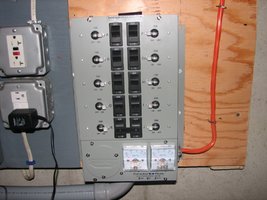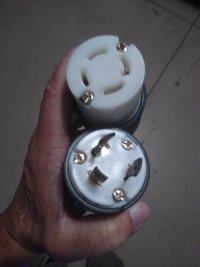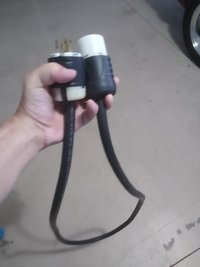I'm somewhat convinced that the power grid is growing weaker than it has been in past years for various reasons, and wouldn't find it surprising at all if we had a major outage this year, so I've decided I want to purchase a emergency (that is, non-whole-house) generator for such exigencies. This the last 'prepping' sort of thing I feel really strongly about getting sorted, but since I'm not yet out of my mind, I want to spend responsibly.
Let's say that I'm torn between something at around 4400 watts like this and something around 9.5kw like this.
Questions:
1) Do larger generators use significantly more fuel than smaller ones under light loads? Or is it reasonably constant fuel usage per kw in either case?
2) Sizing - my primary concern is to permit the oil heat (steam boiler) to run periodically (which needs the pump and ignition circuit to have power), and light-duty charging duties, maybe some ham stuff.
On a gut check, without sitting down and doing the calculation, it seems to me like it should be coverable by something on the lower end of the spectrum.
(I realize this doesn't take into account refrigeration, but I'm content to lose the contents of the fridge or move it outside if it's cold. I have other food, water.)
3) How much fuel am I looking at stocking? (I'd buy dual fuel unit, and want to keep some of each kind of hand)
I haven't found great information, I've found one site that says 1.2G propane or 1G gas an hour will power 6kw.
So, that might be 4hours/day*14 days = 55 gals? Maybe 5 20lb tanks (which should hold 20 gals of propane), and 6 5-gal cans?
Does that sound reasonable, or am I missing something?
(Side question: how good is gas stabilizer? With it, do I still need to rotate/refresh these at some interval, or do they stay usable for a relatively long time)
Thanks, and I'm looking forward to the good answers and any good additional thoughts you might have.
Let's say that I'm torn between something at around 4400 watts like this and something around 9.5kw like this.
Questions:
1) Do larger generators use significantly more fuel than smaller ones under light loads? Or is it reasonably constant fuel usage per kw in either case?
2) Sizing - my primary concern is to permit the oil heat (steam boiler) to run periodically (which needs the pump and ignition circuit to have power), and light-duty charging duties, maybe some ham stuff.
On a gut check, without sitting down and doing the calculation, it seems to me like it should be coverable by something on the lower end of the spectrum.
(I realize this doesn't take into account refrigeration, but I'm content to lose the contents of the fridge or move it outside if it's cold. I have other food, water.)
3) How much fuel am I looking at stocking? (I'd buy dual fuel unit, and want to keep some of each kind of hand)
I haven't found great information, I've found one site that says 1.2G propane or 1G gas an hour will power 6kw.
So, that might be 4hours/day*14 days = 55 gals? Maybe 5 20lb tanks (which should hold 20 gals of propane), and 6 5-gal cans?
Does that sound reasonable, or am I missing something?
(Side question: how good is gas stabilizer? With it, do I still need to rotate/refresh these at some interval, or do they stay usable for a relatively long time)
Thanks, and I'm looking forward to the good answers and any good additional thoughts you might have.




